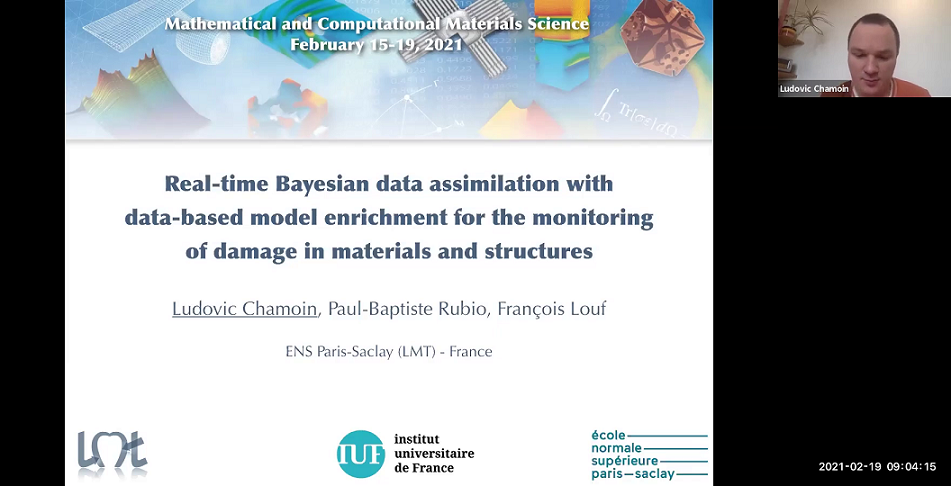Real-time Bayesian data assimilation with data-based model enrichment for the monitoring of damage in materials and structures
Presenter
February 19, 2021
Abstract
The work aims at developing new numerical tools in order to permit real-time and robust data assimilation that could then be used in various engineering activities. A specific targeted activity is the implementation of applications in which a continuous exchange between simulation tools and experimental measurements is envisioned to the end of creating retroactive control loops and online health monitoring on mechanical systems. In this context, and in order to take various uncertainty sources (modeling error, measurement noise,..) into account, a general stochastic methodology with Bayesian inference is considered. However, a well-known drawback of such an approach is the computational complexity which makes real-time simulation a difficult task. The research work thus proposes to couple Bayesian inference with attractive and advanced numerical techniques so that real-time and sequential assimilation can be envisioned. First, PGD model reduction [1] is introduced to facilitate the computation of the likelihood function, the uncertainty propagation through complex models, and the sampling of the posterior density. PGD builds a multi-parametric solution in an offline phase and leads to cost effective evaluation of the numerical model depending on parameters in the online inversion phase. Second, Transport Map sampling [2] is investigated as a substitute to classical MCMC procedures for posterior sampling. It is shown that this technique leads to deterministic computations, with clear convergence criteria, and that it is particularly suited to sequential data assimilation. Here again, the use of PGD model reduction highly facilitates the process by recovering gradient and Hessian information in a straightforward manner [3]. Third, and to increase robustness, on-the-fly correction of model bias is addressed in a stochastic context using data-based enrichment terms. The overall cost-effective methodology is applied and illustrated on a specific test-case dealing with real-time model updating for the control of a mechanical test involving damageable concrete structures with full-field measurements [4].
